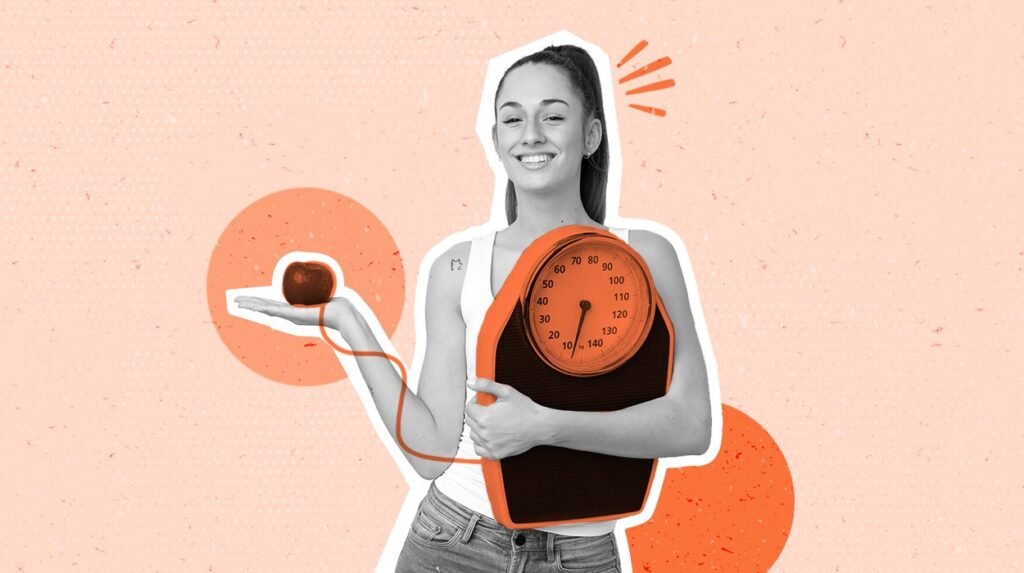
The Link Between Sleep and Weight Loss
We are well aware of the importance of getting sufficient sleep for our overall health and well-being. However, it is fascinating to discover that sleep can also influence weight loss. It may appear too incredible to believe, but scientific research reveals a definite connection between sleep and shedding those stubborn pounds.
Insufficient sleep causes our metabolism to slow down. Esteemed sleep expert Dr. Michael Breus explains how “Lack of sleep can disrupt the hormones responsible for regulating our metabolism, resulting in fewer calories burned by our bodies.” Essentially, when we lack adequate rest, our bodies become lethargic and forget how to efficiently utilize the energy we consume. It is akin to filling up an exquisite sports car with low-quality gasoline – its performance will undoubtedly suffer.
But that’s not all there is to it. Sleep deprivation also wreaks havoc on our hunger hormones. When we don’t get enough shut-eye, leptin – the hormone responsible for signaling fullness – decreases in production while ghrelin – the hormone stimulating hunger – goes into overdrive mode. Our bodies seem to be sending urgent messages to our brains screaming out loud: “Give me all the chips and cookies!” Unsurprisingly, when running on empty, we find ourselves raiding the pantry.
Therefore if you have been struggling with losing a few pounds lately, perhaps it is time to prioritize your Zzzs. As I always advocate: “Sleep acts as your secret weapon in combating weight gain.” Do not underestimate the power of a good night’s rest; let us embrace slumber as a means towards achieving a leaner waistline!
Understanding the Science: How Lack of Sleep Affects Your Metabolism
Lack of sleep not only leaves you feeling groggy and cranky, but it can also throw a wrench into your metabolism. Ever experienced that perplexing sensation when you’re running on empty, and suddenly the urge to consume anything sugary becomes irresistible? Don’t solely blame yourself for those late-night snack attacks; your body is simply attempting to compensate for the energy deficiency caused by insufficient rest.
“The less sleep you get, the slower your metabolism becomes,” reveals sleep expert Dr. Matthew Walker. It’s akin to embarking on a marathon fueled solely by caffeine – initially brimming with energy, but eventually succumbing to an insatiable need for sustenance. And let’s be honest here, when sleep deprivation takes hold, making health-conscious food choices seems as improbable as discovering a unicorn prancing about in your backyard.
Yet why precisely does lack of sleep wreak havoc on our metabolism? This conundrum boils down to two hunger hormones: ghrelin and leptin. Ghrelin, often referred to as the “hunger hormone,” surges when we’re deprived of slumber. In the words of Dr. Michael Breus, author of The Sleep Doctor’s Diet Plan: “When you don’t obtain adequate rest, your body dispatches a signal to your brain proclaiming hunger! But it’s no mere craving for a light salad – it manifests as nocturnal pizza yearnings that hit you like an unstoppable locomotive!”
On the contrary, leptin – responsible for signaling satiety – plummets when we skimp on shut-eye. Henceforth we find ourselves famished while our internal mechanism indicating fullness malfunctions spectacularly. It’s tantamount to an invitation for overindulgence and weight gain – inevitably leading us down regretful paths upon stepping onto that scale come morning.
The bottom line? If shedding those excess pounds is truly paramount in your agenda, then securing some quality Zzzs is just as crucial as revamping your diet and embracing exercise. So seize that cozy blanket, slide into your most comfortable sleepwear, and allow slumber to weave its enchanting spell on your metabolism.
Remember this: sleep is the bewitching ingredient in your weight loss expedition that holds transformative power. To quote Joy Fitness with a burst of whimsy: “When it comes to slumber and shedding those pounds, there’s no room for a dreary snoozefest! Embrace those Zzzs like you’re nestling up with a tub of guilt-free ice cream – it’s the indulgence your body yearns for en route to becoming leaner and fitter.”
Sleep Deprivation and Increased Appetite: The Hunger Hormones Connection
Sleep deprivation can wreak utter havoc on our bodies and minds, leaving us bewildered by its far-reaching consequences. Astonishingly enough, it also has a profound impact on our appetites. You know that inexplicable urge to raid the refrigerator at midnight when you haven’t had your fair share of sleep? Ah, yes! I am all too familiar with that sensation. But fear not, my dear companion; you are not alone in this peculiar struggle!
Inadequate slumber throws our hunger hormones into disarray. The infamous “hunger hormone” known as ghrelin surges while leptin, the trusty messenger indicating fullness, dwindles away. It’s like a formula for catastrophe or perhaps more precisely an invitation to indulge in late-night snacking. As Dr. Michael Breus so astutely observes, “When sleep eludes you, ghrelin takes residence while leptin vanishes into thin air- resulting in insatiable cravings.”
Now comes the question: why does this curious phenomenon occur? Well, let me enlighten you about the brilliance of our bodies (at least most of the time). When we find ourselves deprived of sufficient rest, our cunning brains perceive a dire need for additional energy to remain alert and ward off drowsiness. Consequently, these pesky hunger signals are dispatched with great enthusiasm as we yearn for an assortment of decidedly unhealthy snacks. Driven by such energy shortage caused by lackluster sleep patterns,”the body strives to compensate,” explains Dr. Eve Van Cauter- a diligent researcher dedicated to unraveling the mysteries behind slumber.
So remember this intriguing factoid next time you embark on a midnight pantry exploration: those mischievous hunger hormones bear responsibility for your culinary escapades under moonlight’s watchful gaze! And do not forget that obtaining ample sleep is imperative not only for bolstering your vigor and overall well-being but also for quelling those nocturnal cravings that beckon from the shadows. Stay tuned as we delve into how sleep can remarkably enhance your dietary choices and facilitate weight loss. Is there a realm untouched by the power of slumber? I am beginning to suspect otherwise!
Zzzs for a Better Diet: How Sleep Improves Food Choices
Have you ever experienced the perplexing phenomenon of tossing and turning in bed, desperately trying to fall asleep? It’s a burst of frustration that we’ve all encountered at some point. However, what if I told you that this sleeplessness could have more profound consequences than just leaving you tired?
Prepare to be bewildered by the astonishing connection between sleep deprivation and your dietary choices. You might be scratching your head, questioning how these two seemingly unrelated aspects intertwine. Brace yourself for an eye-opening revelation – our bodies respond to insufficient sleep by increasing the production of a hormone known as ghrelin, which ignites our appetite. Essentially, when we’re running on empty in terms of rest, our bodies send out signals demanding us to satiate ourselves with food.
But hold onto your hats because there’s more! The absence of adequate slumber can also disrupt another hormone called leptin, responsible for regulating feelings of fullness. When we are deprived of sufficient shut-eye, our levels of leptin plummet into oblivion, causing us to experience relentless hunger pangs. It’s almost as if our bodies are engaging in a mischievous game with us – one that makes it excruciatingly challenging to resist succumbing to those tempting late-night snacks cravings.
Quality Over Quantity: The Role of Deep Sleep in Weight Management
The significance of obtaining sufficient sleep for optimal health and weight control is frequently underscored by experts. However, it’s not solely about the amount of sleep you acquire; the quality also plays a vital role. Deep sleep, often referred to as slow-wave sleep, assumes a critical function in weight management as it is during this phase that the body undergoes repair and regeneration, fostering overall well-being.
In terms of weight management, deep sleep acts as a catalyst for resetting your body. As aptly stated by Joy Fitness, “deep sleep serves as an opulent sanctuary for your metabolism.” In this stage, heightened levels of human growth hormone (HGH) are produced by your body which aids in fat burning and lean muscle development. Moreover, deep slumber regulates appetite hormones such as ghrelin and leptin responsible for governing hunger pangs and feelings of satiety.
Ensuring sufficient deep sleep is imperative to uphold a healthy weight. But how can one enhance the quality of their slumber? Well, it all revolves around establishing wholesome sleeping habits. As Jillian reminds us with great clarity: “Your sleeping environment sets the tone for restful tranquility.” It behooves you to ensure that your bedroom exudes darkness, coolness, and freedom from distractions. Steer clear from stimulating activities prior to bedtime such as indulging in screen time or engaging in late-night workouts. Instead, attempt to unwind through serene rituals like delving into literature or embracing a soothing bath experience. Remember – when it comes down to deep slumber and managing weight – excellence triumphs over quantity.
So next time you find yourself writhing restlessly at nightfall recall just how pivotal deep sleep is within the realm of weight management. As humorously articulated by Jillian herself: “Do not permit snack attacks impede upon your dreams!” Dedicate ample time towards prioritizing an undisturbed night’s rest whilst reaping the rewards of a rejuvenated physique and a balanced weight. Your metabolism shall express its gratitude, and you’ll awaken invigorated, prepared to seize the day – one well-deserved nap at a time.
Stress and Sleep: How Relaxation Promotes Weight Loss
Stress and sleep, a perplexing duo that intertwines like peanut butter and jelly or Netflix and chill. Yet, did you fathom the notion that managing stress and acquiring a restful night’s slumber can actually aid in shedding those undesirable pounds? It may bewilder you, but it holds true! Relaxation is not merely an act of indulgence or self-pampering (although I must say, it is always a splendid idea). Rather, it grants your body the opportunity to reboot and rejuvenate, thereby directly influencing your voyage towards weight loss.
In times of stress, our bodies unleash a formidable hormone known as cortisol. This mischievous little fiend not only wreaks havoc on our emotional state and vitality but also sabotages our endeavors to shed excess weight. As Dr. Sanjay Gupta once uttered with wisdom,”Elevated cortisol levels have been tied to heightened appetite and cravings for luscious high-fat delicacies.” Therefore, if perpetual stress drives you straight into the arms of that pint of ice cream time after time, then perhaps it is high time to retreat momentarily from the chaos and seek solace in relaxation. Your waistline shall forever remain indebted to such respite!
I perceive your cogitations now; “Jillian, how am I expected to unwind when my agenda stretches out for miles on end? Life feels akin to an endless marathon!” Trust me when I say this dear reader – I have traversed those treacherous paths too. However, permit me to disclose a clandestine truth unto you: integrating relaxation techniques into your daily regimen need not be convoluted nor intricate. The solution lies within simple gestures such as taking several moments each day dedicated solely to deep breaths or embarking upon leisurely strolls amidst nature’s embrace (and let us keep secret any guilty pleasures involving delectable chocolate). Remember well though – Rome was never erected overnight just as your stress levels will not miraculously vanish. Yet, through gradual modifications and the prioritization of self-care, a blissful metamorphosis awaits you – a happier, healthier version of yourself. So go forth, inhale deeply, and surrender to relaxation’s tender embrace. Your aspirations for weight loss remain firmly within your grasp!
(The article continues without any final remarks)


